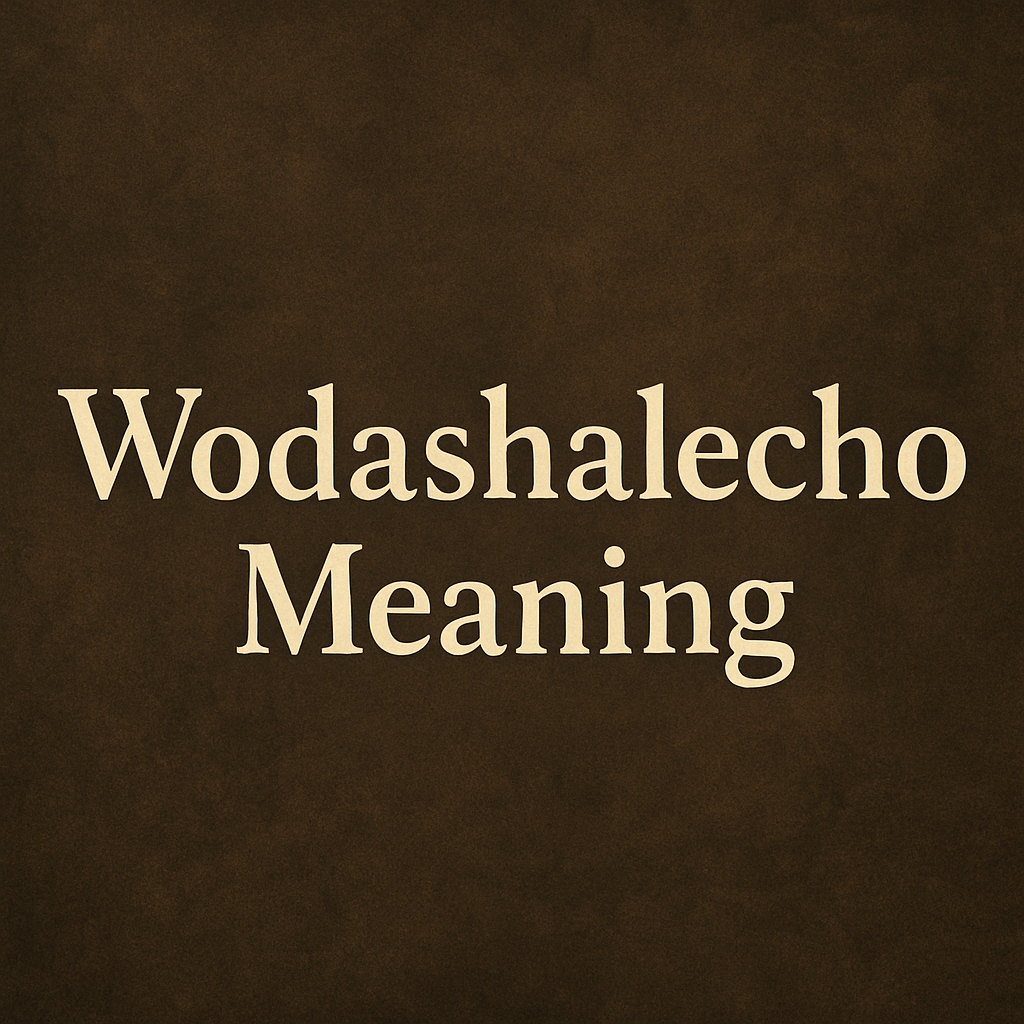
The phrase “wodashalecho” doesn’t appear to be a standard English word or have a widely recognized meaning. However, it could be a misspelling, a code, or a phrase from another language. Here are some possibilities:
What does Wodashalecho mean?
“Wodashalecho” is an Amharic (Ethiopian) word that translates roughly to “I miss you” or “I long for you” in English. It’s a heartfelt expression often used in romantic, familial, or close emotional relationships to convey deep affection and the pain of missing someone.
Origin and Language
- Language: Amharic
- Country of Origin: Ethiopia
- Word: Wodashalecho (ወደሻለችኝ for males, ወደሻለኝ for females)
- Meaning: “I miss you” / “I have missed you” / “I long for you”
This word comes from the verb “wodä”, which means “to love” or “to miss”, and “shalecho” is a conjugated form showing emotion directed toward someone.
Usage in Daily Speech
In Ethiopia, wodashalecho is used:
- When speaking to a loved one after a long time apart
- In texts, songs, or romantic poetry
- To express emotional pain or yearning for someone special
It is a tender, emotional word and holds deeper meaning than a simple “miss you.”
Cultural Context
Ethiopian languages, especially Amharic, carry strong emotional weight in daily speech. Using a word like “wodashalecho” implies not just casual missing but a sincere, heartfelt emotion. It may be said between:
- Husbands and wives
- Parents and children
- Friends separated by distance
- Lovers who are emotionally attached
Comparison to English
| Language | Phrase | Meaning |
|---|---|---|
| Amharic | Wodashalecho | I miss you / I love and miss you |
| English | I miss you | I wish you were here |
| Arabic | أشتاق إليك | I long for you |
| Spanish | Te extraño | I miss you |
How to Say It
- Male speaking to female: Wodashalech
- Female speaking to male: Wodashalehu
- To a group or in general: Wodashalechu
Note: Pronunciation may vary slightly by region.
Conclusion
Wodashalecho is more than a simple phrase — it’s an expression of deep longing and heartfelt emotion in the Amharic language. If someone says it to you, they’re expressing that you hold a special place in their heart.



